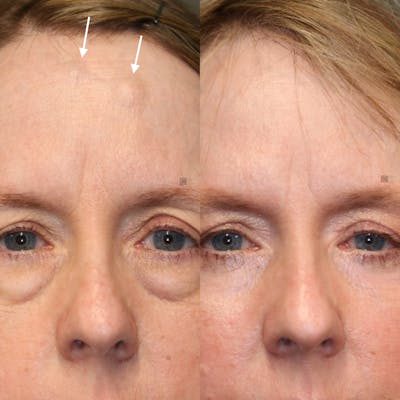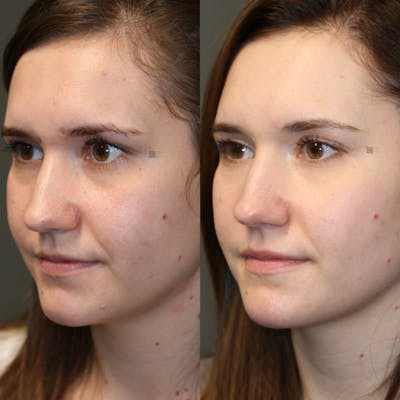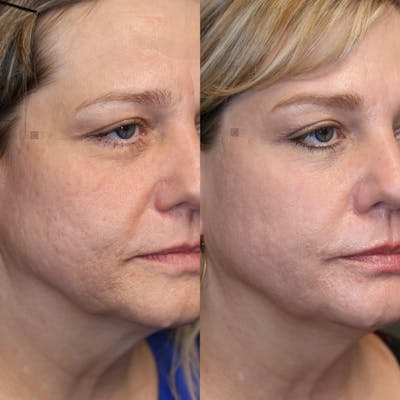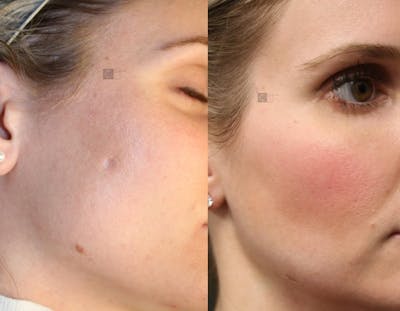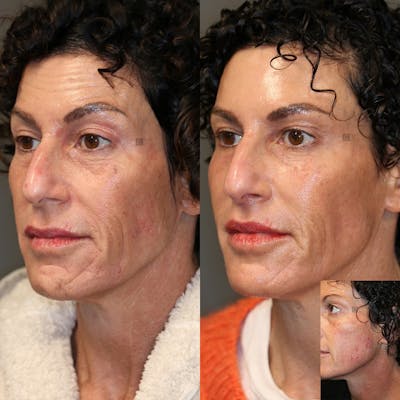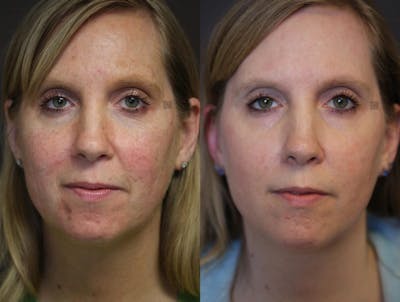
Complex facial wound treated with laser and regenerative medicine. The photo on top was a photo taken by this incredibly beautiful woman after she had a routine excision of a cyst on her glabella and ended up with necrosis of the area.
When it comes to scars, or wounds that are healing, I often hear from patients that they were told by their surgeon to let it heal all the way before modulating or treating the scar. This is often the case even for cosmetic procedures, but I’m a big advocate of early intervention, which is what evidence-based medicine supports as well. I tell patients that scars are like a child, the earlier you have a presence in their life, the more you can influence how they grow up, sometimes just with little things.
When we have the luxury of planning our procedure, scar management is built into that plan. With most scars I begin to manage them immediately, at the time of surgery and often again a week later at suture removal. When we don’t have the luxury planning, or when the procedure wasn’t performed with me, I prefer to start within the first of month or two.
With this woman, we were able to start treating early, and we did so with hyperbaric oxygen treatments, stem cells and growth factors - all part of my regenerative medicine protocol - and we finished with four small laser treatments. Here you see the results about six months into the process. It will continue to get better and less red from here, but at this point it is already a potential disaster turned into a success story!




